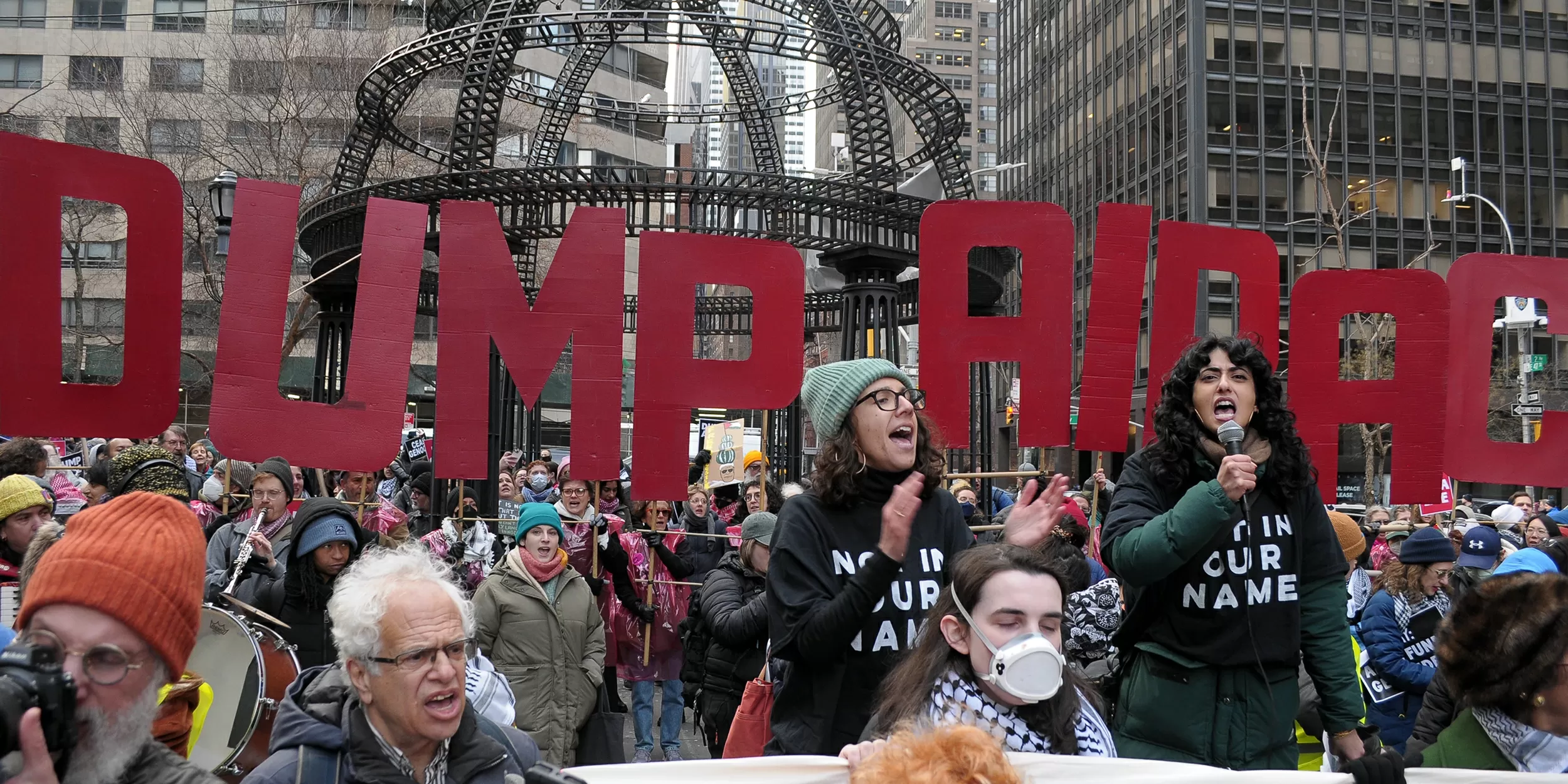In recent years, the American Israel Public Affairs Committee (AIPAC) has emerged as a powerful force in Democratic primaries, often working against progressive candidates and their platforms. But now, a new coalition is rising to protect the left flank of the Democratic Party and challenge AIPAC’s influence. This is a significant development for progressives and a much-needed response to AIPAC’s growing hold on the party.
For decades, AIPAC has been seen as the leading pro-Israel lobbying group in the United States. With a massive budget and a strong network of supporters, they have been able to shape US policy towards Israel and exert significant influence in Washington. However, in recent years, AIPAC’s actions have come under scrutiny and criticism from progressive groups and activists.
One of the main issues with AIPAC is their uncritical support for the policies of the Israeli government, which often align with the right-wing agenda of Prime Minister Benjamin Netanyahu. This includes the continued occupation of Palestinian territories, the expansion of illegal settlements, and the blockade of Gaza. AIPAC’s blind support for these policies goes against the values of many progressive Democrats who believe in human rights and justice for all.
In addition, AIPAC’s influence in US politics has also been called into question. The organization has been accused of using its financial resources to sway politicians and candidates to support their agenda. This has led to concerns about the influence of special interest groups in American politics and the impact it has on policy decisions.
These concerns have only intensified in recent years as AIPAC has become more involved in Democratic primaries, often supporting more conservative candidates over progressive ones. This has caused frustration and disappointment among many in the party who feel that AIPAC’s actions do not align with the values and goals of the Democratic Party.
But now, a new coalition is stepping up to challenge AIPAC’s dominance. Composed of progressive Jewish organizations, grassroots activists, and progressive politicians, this coalition aims to provide an alternative voice to AIPAC and push for a more balanced and just approach to US-Israel relations.
One of the key organizations in this coalition is IfNotNow, a movement of young Jews who are challenging the status quo and calling for an end to the occupation of Palestinian territories. They have been actively working to educate the public about AIPAC’s influence and organizing actions to hold politicians accountable for their support of AIPAC.
Another important player in this coalition is the progressive Jewish advocacy group, J Street. They have been working to promote a more progressive and balanced approach to US-Israel relations and have been actively supporting progressive candidates in Democratic primaries.
This coalition also includes progressive politicians such as Senator Bernie Sanders and Representatives Ilhan Omar and Rashida Tlaib, who have been vocal critics of AIPAC and its influence in US politics. Their presence and support bring legitimacy and strength to the coalition’s efforts.
The formation of this coalition is a significant development for progressives and the Democratic Party as a whole. It shows that there is a growing movement within the party to challenge AIPAC’s influence and push for a more just and balanced approach to US-Israel relations.
It is also a testament to the power of grassroots organizing and the impact it can have on shaping political discourse. By coming together and mobilizing their resources, these organizations and individuals are showing that they are a force to be reckoned with and that they will not be silenced by AIPAC’s deep pockets.
The coalition’s efforts have already had an impact, with several progressive candidates winning in recent Democratic primaries despite AIPAC’s support for their opponents. This is a clear indication that the tide is turning and that AIPAC’s hold on the party is weakening.
However, this is just the beginning. AIPAC is a well-funded and well-connected organization, and they will not give up their influence easily. But with the support of this new coalition, progressive Democrats have a fighting chance to push back against AIPAC’s agenda and promote a more just and balanced approach to US-Israel relations.
In conclusion, the formation of this new coalition is a positive and much-needed development for progressives in the Democratic Party. It shows that there is a growing movement to challenge AIPAC’s influence and promote a more just and balanced approach to US-Israel relations. With their continued efforts, we can hope to see a more progressive and just Democratic Party in the future.






